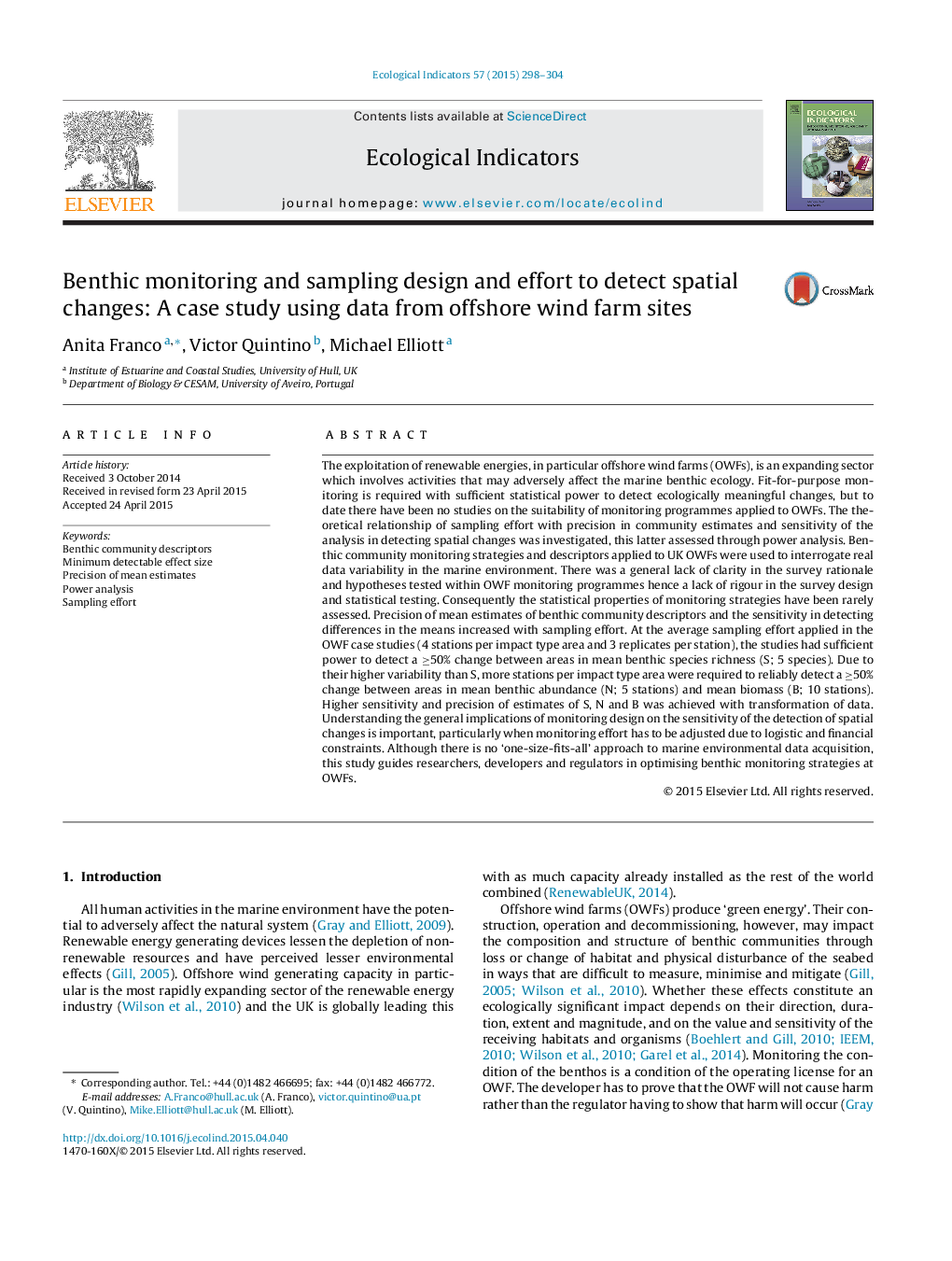| Article ID | Journal | Published Year | Pages | File Type |
|---|---|---|---|---|
| 6294670 | Ecological Indicators | 2015 | 7 Pages |
Abstract
The exploitation of renewable energies, in particular offshore wind farms (OWFs), is an expanding sector which involves activities that may adversely affect the marine benthic ecology. Fit-for-purpose monitoring is required with sufficient statistical power to detect ecologically meaningful changes, but to date there have been no studies on the suitability of monitoring programmes applied to OWFs. The theoretical relationship of sampling effort with precision in community estimates and sensitivity of the analysis in detecting spatial changes was investigated, this latter assessed through power analysis. Benthic community monitoring strategies and descriptors applied to UK OWFs were used to interrogate real data variability in the marine environment. There was a general lack of clarity in the survey rationale and hypotheses tested within OWF monitoring programmes hence a lack of rigour in the survey design and statistical testing. Consequently the statistical properties of monitoring strategies have been rarely assessed. Precision of mean estimates of benthic community descriptors and the sensitivity in detecting differences in the means increased with sampling effort. At the average sampling effort applied in the OWF case studies (4 stations per impact type area and 3 replicates per station), the studies had sufficient power to detect a â¥50% change between areas in mean benthic species richness (S; 5 species). Due to their higher variability than S, more stations per impact type area were required to reliably detect a â¥50% change between areas in mean benthic abundance (N; 5 stations) and mean biomass (B; 10 stations). Higher sensitivity and precision of estimates of S, N and B was achieved with transformation of data. Understanding the general implications of monitoring design on the sensitivity of the detection of spatial changes is important, particularly when monitoring effort has to be adjusted due to logistic and financial constraints. Although there is no 'one-size-fits-all' approach to marine environmental data acquisition, this study guides researchers, developers and regulators in optimising benthic monitoring strategies at OWFs.
Keywords
Related Topics
Life Sciences
Agricultural and Biological Sciences
Ecology, Evolution, Behavior and Systematics
Authors
Anita Franco, Victor Quintino, Michael Elliott,
